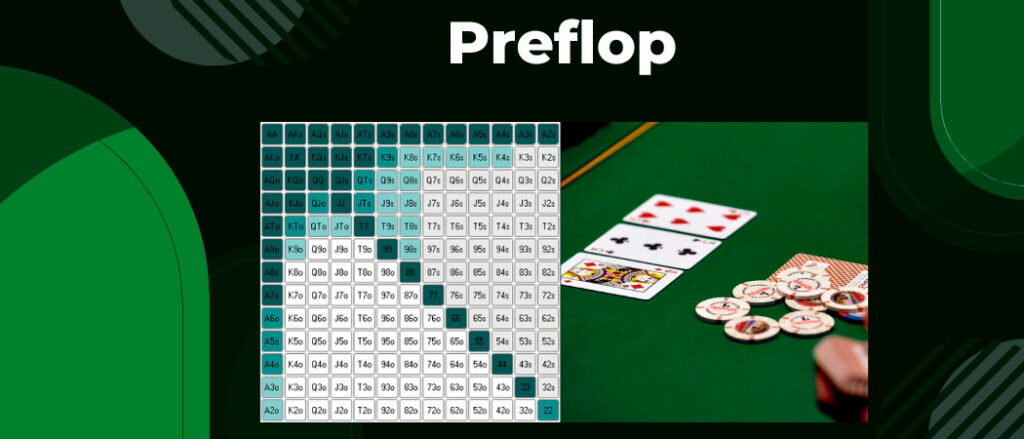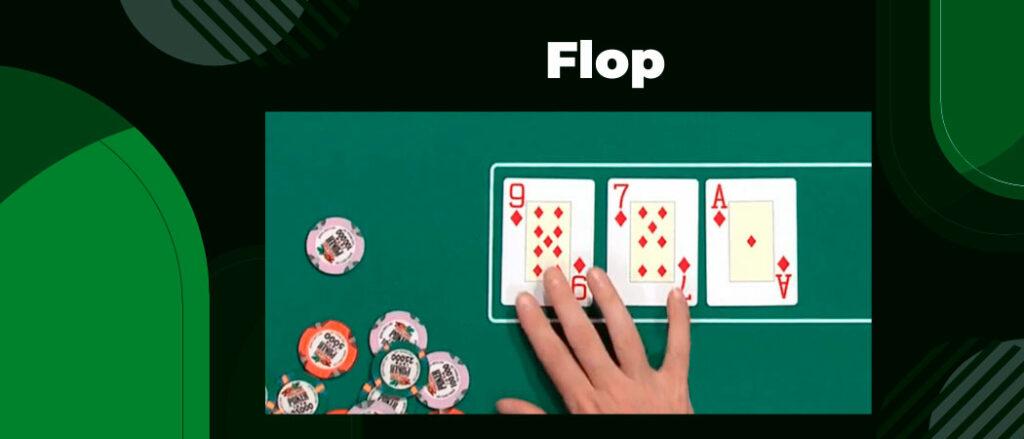Today Omaha is the second most popular poker variation (after Hold’em). 2-10 poker players can play Omaha on one board. Otherwise, this variation is similar to classic Hold’em, except that the players get four instead of two cards. The game involves four betting rounds and three rounds with open cards. Even before the start of the game, it is necessary to determine the dealer – he will deal cards and have a big chip (button). The player to the left of the dealer posts the small blind, and the player to the right of the button posts the big blind, twice the small blind.
Preflop

At the initial stage of the game, each person at the table is dealt four cards. They are visible only to the poker player himself and constitute a starting hand, the strength of which can be easily determined. In general, the variability of starting hands in Omaha reaches 16,432, and the number of card combinations is approximately equal to 300.
So, having received cards in their hands and having analyzed the odds, the players take part in the auction. At this stage, four options are available:
- Check. Indicates a skip move.
- Fold. In the event that the starting hand is extremely weak, the player can fold and exit the game.
- Raise. This refers to the increase in the opponent’s rate.
- Call. Action means that the player has called the previous bet.
Flop

After the first bidding, the button lays out three open cards on the board – they can be used by all players when making a combination. When you have a promising combination of cards, it is important to contain your emotions so that your opponents do not see you through. After the flop, all participants again make bets – they add to the total pot amount that the winner will receive.
Turn
This is an extremely important stage because here one more card appears for making a combination, and the game can turn dramatically both in terms of dynamics and in relation to potential leaders. No wonder this stage in translation from English is called “turn”.
The turn is a time of bluffing and aggressive actions, as well as a circle when it is most important to hide your emotions and recognize others. In this round, very often inexperienced players “fly by” who lack composure and confidence in their actions.
River
So the time comes for the decisive fifth map, which brings maximum understanding to the possible outcome of the game. Here it is important to remember the entire rally and carefully analyze the possible hands of the opponents. It’s time for the final bets.
Showdown
So, the last stage of the game is the orderly showdown. One of the opponents, whose combination is the most powerful, gets the whole pot. There is a hierarchy of card combinations and this is traditional in the case of Omaha. The weakest combination is High Card, the most powerful variation is Royal Flush. By the way, another important difference of the Omaha rules is that the final combination must consist of two cards from the hand and three cards from the board – keep this in mind!
